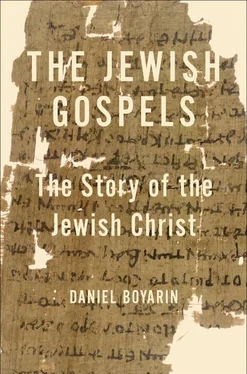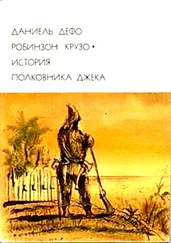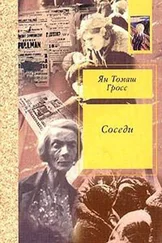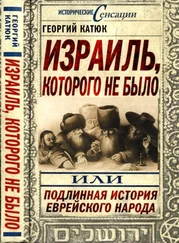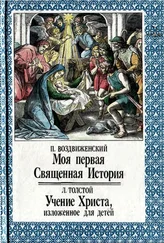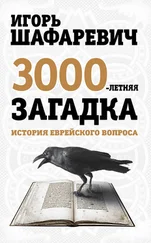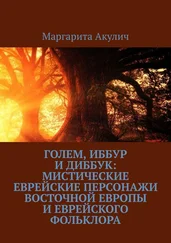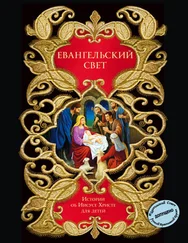Cf. Robert H. Gundry, Mark: A Commentary on His Apology for the Cross (Grand Rapids, MI: Eerdmans, 2004 [1993]), I: 144. For other authors holding this view, see discussion in Neirynck, "Jesus and the Sabbath," 2 3 7 - 3 8 , and notes there.
As far as I can tell, my view is closest in certain respects to that of Eduard Schweizer, Das Evangelium Nach Markus [Bible. 4, N T Mark. Commentaries], Das Neue Testament Deutsch (Gottingen: Vandenhoeck & Ruprecht, 1973), 39-40.
For discussion of these two apparent difficulties, see Marcus, Mark 1-8, 243-47.
Cf. Beare," The Sabbath Was Made for Man?'" 134.1 disagree with Beare, however, in his assumption that the David argument could only have been mobilized with messianic overtones, given that we find it in rabbinic literature without such overtones and in a very similar context, namely, as a justification for violating the Torah in a situation in which there is a threat to life (even a very mild such threat, such as a sore throat). Palestinian Talmud Yoma 8:6,45:b.
For a similar view, see Collins, Mark: A Commentary, 185 n28.
Richard Bauckham, "The Throne of God and the Worship of Jesus," in The Jewish Roots of Christohgical Monotheism: Papers from the St. Andrews Conference on the Historical Origins of the Worship of Jesus, ed. Carey C. Newman, Supplements to the Journal for the Study of Judaism (Boston: Brill, 1999), 53. See too Charles A. Gieschen, Angelomorphic Christology: Antecedents and Early Evidence, Arbeiten Zur Geschichte Des Antiken Judentums und Des Urchristentums (Leiden: Brill, 1998), 93-94
For the formerly held position that the parables were earlier than this, see Matthew Black, "The Eschatology of the Similitudes of Enoch," Journal of Theological Studies 3 (1953): 1. For the latest and generally accepted position, see essays in Gabriele Boccaccini, ed., Jason von Ehrenkrook, assoc. ed., Enoch and the Messiah Son of Man: Revisiting the Book of Parables (Grand Rapids, MI: William B. Eerdmans, 2007), 415-98, especially David Suter, "Enoch in Sheol: Updating the Dating of the Parables of Enoch," 415-33
The major exegetical work to demonstrate that this chapter is constructed as a midrash on Daniel 7:13-14 has been done by Lars Hartman, who shows carefully how many biblical verses and echoes there are in the chapter. Lars Hartman, Prophecy Interrupted: The Formation of Some Jewish Apocalyptic Texts and of the Eschatological Discourse Mark 13, Conjectanea Biblica (Stockholm: Almqvist and Wiksell, 1966), 118-26. My discussion in this and the next paragraph draws on his, so I will forgo a series of specific references. In any case, I can only summarize his detailed and impressive argument
Pierluigi Piovanelli," 'A Testimony for the Kings and Mighty Who Possess the Earth': The Thirst for Justice and Peace in the Parables of Enoch," in Enoch and the Messiah Son of Man: Revisiting the Book of Parables, ed. Gabriele Boccaccini (Grand Rapids, MI: Eerdmans, 2007).
James R. Davila, "Of Methodology, Monotheism and Metatron," in The Jewish Roots of Christological Monotheism: Papers from the St. Andrews Conference on the Historical Origins of the Worship of Jesus, ed. Carey C. Newman, Supplements to the Journal for the Study of Judaism (Leiden: Brill, 1999), 9.
Moshe Idel, Ben: Sonship and Jewish Mysticism, Kogod Library of Judaic Studies (London: Continuum, 2007), 4.
For a study of the ubiquity of this pattern, see Idel, Ben, 1-3.
Adela Yarbro Collins, Mark: A Commentary, ed. Harold W. Attridge, Hermeneia—a Critical and Historical Commentary on the Bible (Minneapolis: Fortress Press, 2007), 356. It should be emphasized that Collins does not consider this necessarily the meaning of Jesus' original pronouncement at v. 15, but she does so read v. 19, which is a gloss by the evangelist Mark, thus rendering Mark (like Paul) the beginning of the end of the Law for Christians.
Robert A. Guelich, Mark 1-8:26, Word Biblical Commentary 34A; Mark; I-VIII (Dallas, TX: Word Books, 1989), 380.
See too for instance, "Mark, our earliest gospel, offers a more reliable standard [than Paul]; and it says that Jesus abrogated laws of food and purity and violated the Sabbath"; Robert H. Gundry, Mark: A Commentary on His Apology for the Cross (Grand Rapids, MI: Eerdmans, 1993, 2004). This may be "a known fact" for Gundry; hardly for me .
Following Martin Goodman, who writes, "Jesus (or Matthew) was attacking Pharisees for their eagerness in trying to persuade other Jews to follow Pharisaic halakah"; Martin Goodman, Mission and Conversion: Proselytizing in the Religious History of the Roman Empire (Oxford: Clarendon Press, 1994), 70. This is surely not the only possible interpretation, but it is the one that makes the most sense to me.
To be sure, the confusion has been partly engendered by the biblical usage itself. There is one area in which the terminology is muddled. Of the animals that we may eat and may not eat, the Torah uses the terms "pure" and "impure." Nonetheless, the distinction between the two systems–what makes foods kosher or not and what makes kosher foods impure or not–remains quite clear despite this terminological glitch. In the later tradition, only the word "kosher" is used for the first, while "pure" means only undefiled .
Marcus, Mark 1-8, 439, but on 441 he is still doubtful. I, of course, agree with the translation, disagree with the doubt.
The hermeneutic logic here is similar to that of Marcus in remark 2:23 (Marcus, Mark 1-8, 239) where the emphasis on"making a way" is taken as an allusion to the way that Jesus is making in the wilderness (the field). I am suggesting that Mark's emphasis on "with a fist," which is in itself quite realistic but seemingly trivial, has a similar symbolic overtone .
Yair Furstenberg, "Defilement Penetrating the Body: A New Understanding of Contamination in Mark 7.15," New Testament Studies 54 (2008): 178 .
Tomson, 81, has brought this text to bear on Mark 7. It should be further pointed out, according to the Babylonian Talmud Shabbat 14a, that Rabbi Eliezer holds an even stricter standard than this; it is still within the category of rabbinic (Pharisaic) innovation or the "traditions of the Elders," just as Jesus dubs it.
Collins, Mark: A Commentary, 350. Given, however, that she so precisely articulates this, I cannot understand how on the next page she approves of Claude Montefiore's statement that "the argument in w. 6-8 is not compelling." It is as compelling as can be as described above: "Why, Pharisees, are you setting aside the commandments of God in favor of the commandments of humans–handwashings, vows–as the Prophet prophesied?"
In chapter 2, there is also a passage that is, I think, illuminated by such a perspective. In w. 18-22, some people wonder why other pietists (the disciples of John and the Pharisees) engage in fasting practices, while the disciples of Jesus do not. Jesus answers that they may not fast in the presence of the bridegroom, which is clearly a halakhic statement interpreted spiritually to refer to the holy, divine Bridegroom of Israel. As Yarbro Collins makes clear, this is another indirect claim on Jesus' part to be divine {Mark: A Commentary, 199).
Читать дальше
